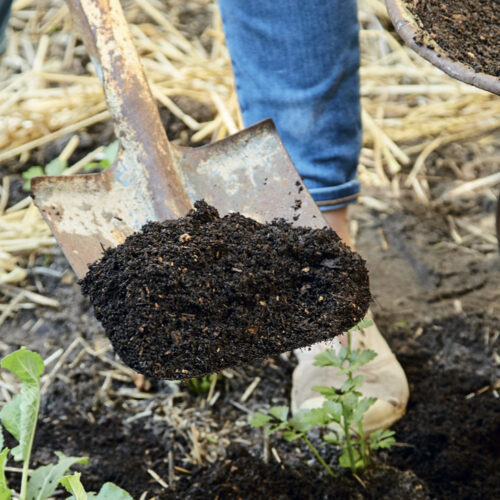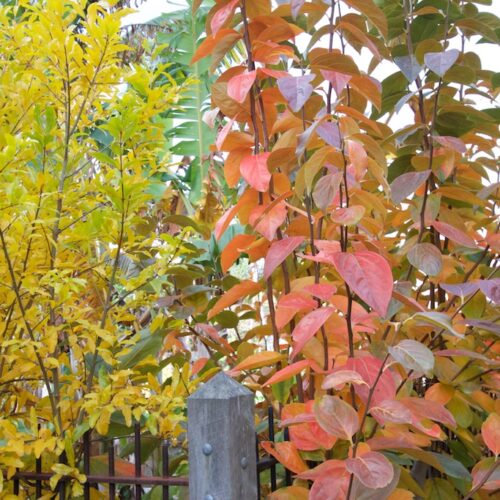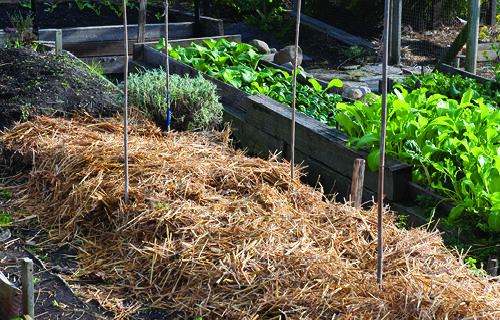The pros and cons of mulching
2011-03-07T00:44:24+11:00
Nothing is perfect – not even mulch – writes SIMON WEBSTER.
It feels almost heretical to say anything against mulch. Mulch helps soil retain moisture and an even temperature, suppresses weeds, encourages worm and microbial activity, prevents erosion and adds organic matter to soil. What’s not to like?
Well, without wanting to be denounced as an anti-mulchite, it should be pointed out that thick layers of mulch can absorb light rain (and water from sprinklers) and stop it getting through to the soil. Secondly, if the meditation of hoeing rows is your thing (and let’s not forget the beneficial bacterial bloom that a light cultivation creates), forget it: weeds that do emerge will have to be dealt with by hand (and they will emerge – especially if you are keeping the mulch layer thin to allow water through).
Thirdly, mulch can keep soil cool in spring, when you want it to warm up. Fourthly, with woody mulches there’s a phenomenon called nitrogen drawdown, caused by micro-organisms drawing nutrients out of the soil to break down mulch. (A layer of compost or a sprinkling of blood and bone beneath the mulch can help counteract this). And fifthly, mulches can appeal to slugs, snails, mice and other unwelcome guests.
For example, I planted four rows of corn last month. When the corn came up I mulched two rows with dried grass cuttings and left two rows bare, just to see what difference it would make. The early results? Half-a-dozen young corn plants beheaded by caterpillars in the mulched rows, while the plants in the unmulched rows remain untouched. One of the suspects is pictured at the scene of the crime (please accept my apologies if the sight of a decapitated corn plant is distressing to some readers).
Will the benefits of mulching outweigh the downsides? We shall see.





